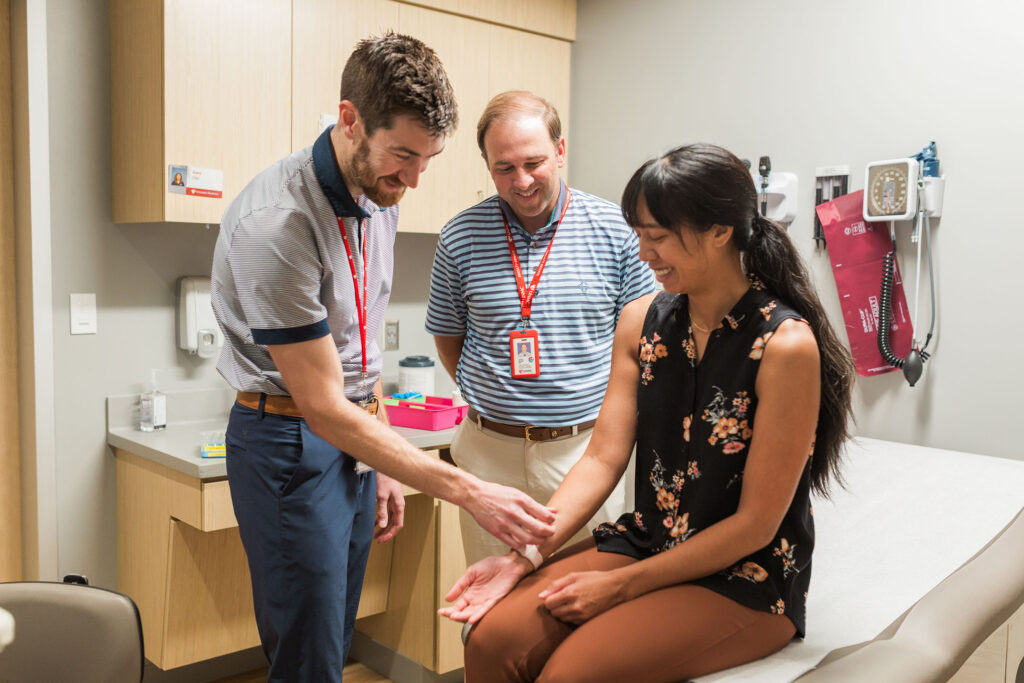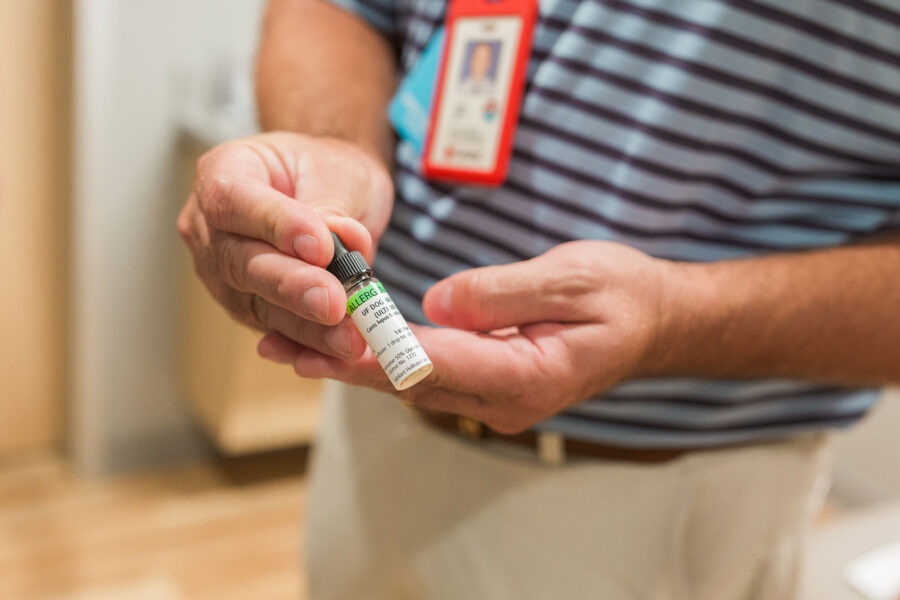UNMC researchers found a more effective method of testing for dog allergy, giving answers to patients who previously tested negative but still experienced symptoms.

Andrew Rorie, MD, associate professor in the UNMC Division of Allergy and Immunology, and allergy fellow Alex Penrice, MD, skin-tested 300 patients enrolled in the study. They compared three products – dog epithelium, acetone precipitated dog and ultrafiltered dog – to see which was superior in detecting dog sensitization.
“We’ve had some patients in clinic where we’ve done skin testing and we’ve done serum allergy testing for dog and those have come back negative, suggesting that they don’t have a dog allergy,” Dr. Rorie said. “But there is a subset of these patients who are insistent that even though the testing was negative, that they really were allergic to dogs.”
Dr. Rorie said previously there have been two different products that have been used to perform dog allergy testing – dog epithelium and acetone precipitated dog. In January 2023, a new product called ultrafiltered dog received FDA approval for dog immunotherapy.
“Even though it got approved for immunotherapy, no one ever actually did any skin testing studies with it,” Dr. Rorie said. “We’re one of the first groups to do anything like this, and what we did find was that the new extract that has come out, this ultrafiltered dog, is superior to the other two.”
Dr. Rorie said med center clinics were primarily using AP dog but, as a result of the study, they have switched to ultrafiltered dog, which picks up about 5% more dog allergy than the AP dog product and 14% more than dog epithelium, which was previously being used for dog allergy testing in clinics.
“It’s not only going to change the way that we test in clinic here, but I think it’s going to actually be a huge change nationally and internationally how people test in clinic, as well,” he said.
Dr. Rorie said his research study now affects how they test and treat patients, which can improve their lives for the better.
“It makes a huge difference,” he said. “Now that we have this new test that we can use to maybe prove that they are actually allergic, we can provide them with immunotherapy and we can desensitize them. We can make it so that their quality of life is improved, and they can enjoy being around their pets more.”
The study was published in The Journal of Allergy and Clinical Immunology: In Practice on July 10.

Is this something we can order from IOP and send off or is this something that is done on location at your facility?